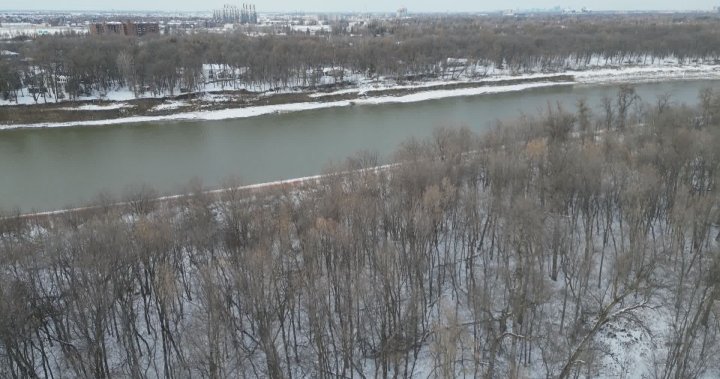The City of Winnipeg’s Riel Community Committee has filed a motion to uphold a recent decision not to demolish a St. Norbert home, resulting in a special appeal hearing where concerns were addressed by Winnipeg councillors Markus Chambers and Matt Allard. Lawyer Kevin Toyne, speaking on behalf of Tochal Development Group, expressed disappointment with the committee’s decision and emphasized the need for the city to be more receptive to development. He argued that allowing the demolition would facilitate easier access to another “landlocked” property owned by the group, the Lemay Forest, despite opposition from local groups who view the area as a valuable recreation space for residents.
Speakers at the appeal hearing raised concerns about the broader issue of the Lemay Forest area, but coun. Allard emphasized that the decision had to focus on whether the director made the correct decision regarding the demolition. Both councillors agreed that the director was right in not allowing the demolition without specific plans attached, indicating that the decision was based on a limited scope. However, this decision does not signify the end of proposed development in the Lemay Forest area, as representatives from Tochal stated their intention to keep the area off-limits to the public and are considering their next steps.
Kevin Toyne criticized the requirement for Winnipeggers to retain a lawyer to achieve their desired outcomes from the local government, highlighting the challenges faced by developers in navigating the city’s regulations and processes. He made it clear that the land in question will eventually be developed and cannot remain a private park at the expense of a private citizen. This stance reflects the ongoing tensions between development interests and community groups advocating for the preservation of natural spaces in the city, underscoring the complex dynamics involved in urban planning and land use decisions.
The appeal hearing showcased the conflicting perspectives and interests at play in the development debate surrounding the Lemay Forest area, with stakeholders expressing divergent opinions on how the land should be utilized and preserved. While some residents view the area as a significant recreational resource that should be protected, developers like Tochal Development Group see potential for profitable development and argue for the need to accommodate growth and expansion in the city. The decision not to allow the demolition of the St. Norbert home underscores the importance of balancing these competing demands and ensuring that decisions are made in the best interest of the community as a whole.
Moving forward, the City of Winnipeg will continue to grapple with the challenges of managing development and preserving green spaces in a rapidly growing urban environment. The outcome of the appeal hearing reflects the ongoing negotiations and compromises that are necessary to address the complex and multifaceted issues surrounding land use and development. As the city evolves and expands, stakeholders will need to engage in constructive dialogue and collaboration to find solutions that accommodate both growth and sustainability, taking into account the needs and preferences of diverse communities and interest groups. By navigating these complexities with transparency and inclusivity, Winnipeg can work towards a more balanced and equitable approach to managing its urban landscape for the benefit of all residents.


